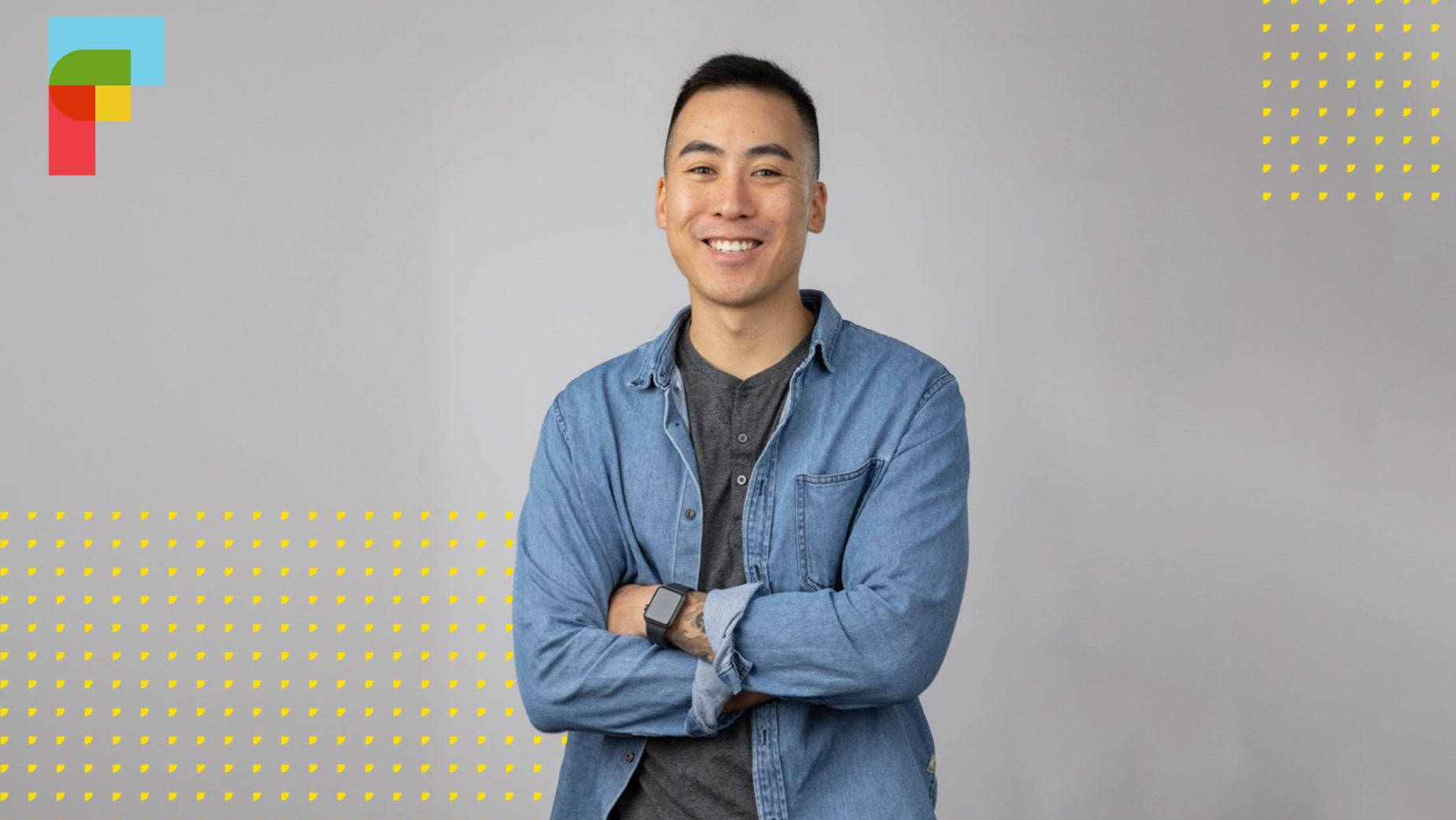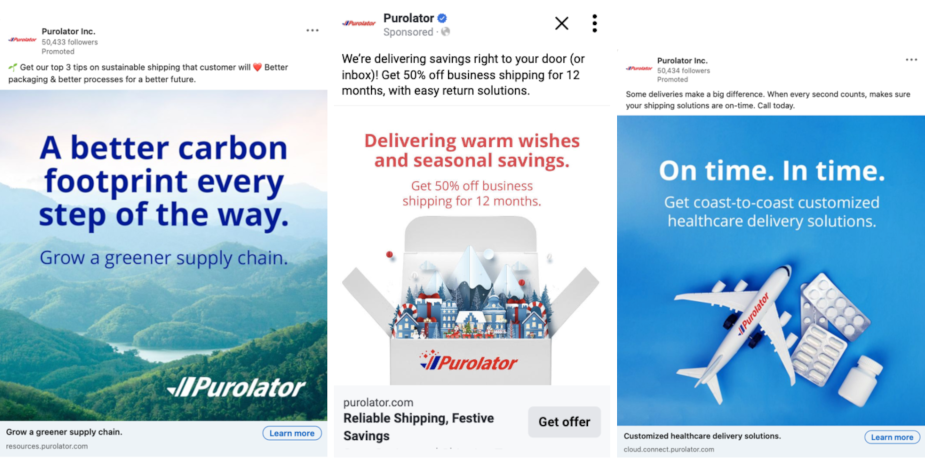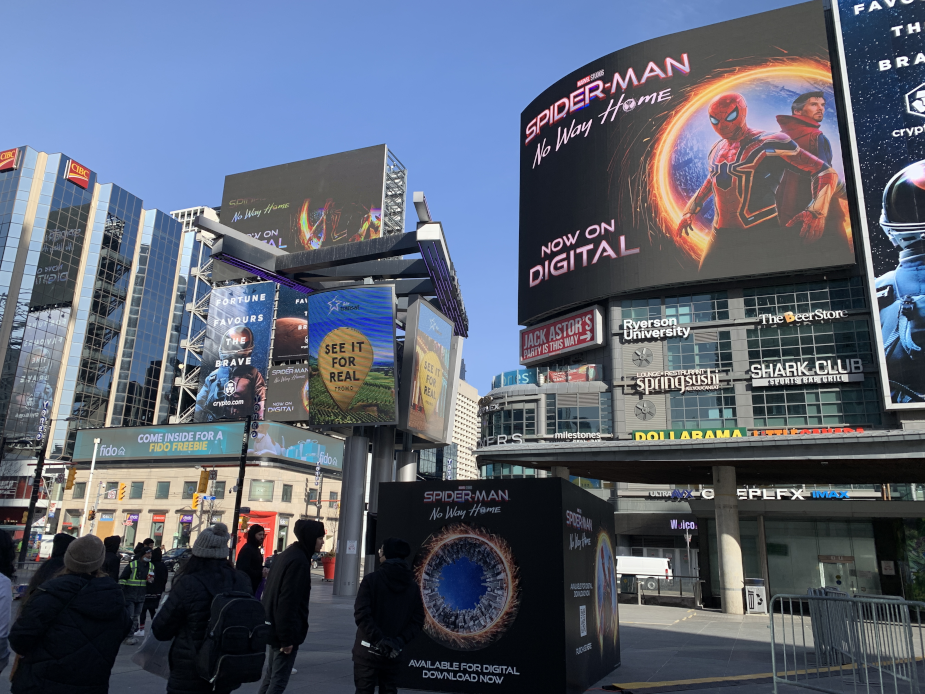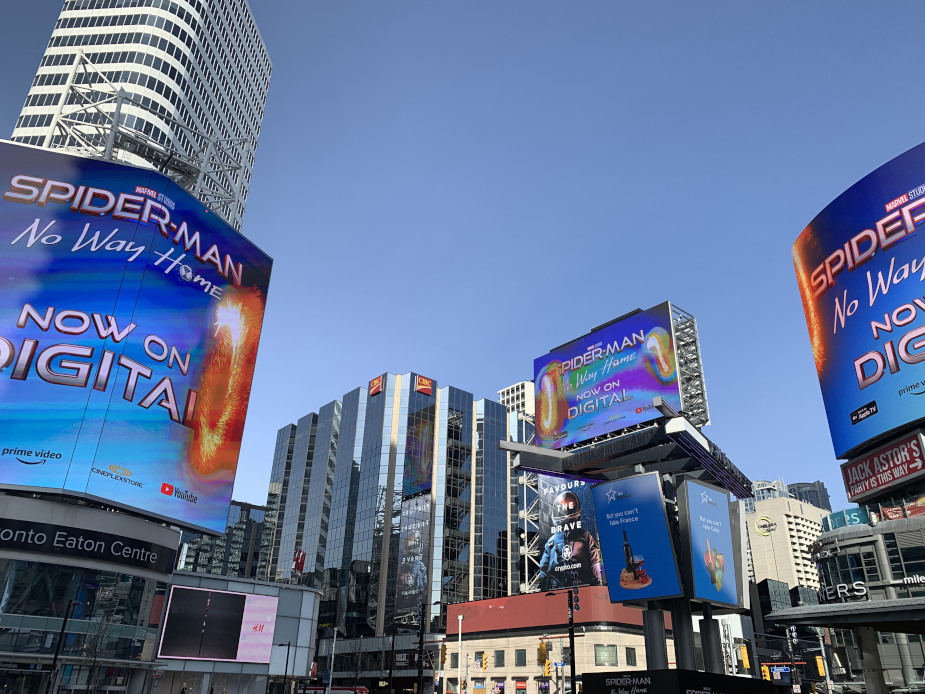
Media Matters: Constantly Pushing the Envelope with Alex Lu

As an experienced digital marketer, Alex Lu has a proven track record of delivering results in the fast-paced digital media space. Alex's experience includes B2B and B2C, and spans a variety of industries and verticals including non-profits, consumer packaged goods and tech. Alex excels at crafting and implementing digital marketing strategies that drive engagement, increase brand awareness, and ultimately, deliver tangible results for their clients. Alex's passion for staying ahead of the latest trends in digital marketing allows him to consistently deliver innovative and effective campaigns that exceed expectations.
LBB> What was it about the world of advertising media that pulled you in? What did you do before you got into media?
Alex> Prior to my career in digital advertising, I worked at an independent broadcast company that owned an over-the-air tv channel, a couple specialty channels, and some acquired online properties. I started off as a master control operator and then later became a broadcast technician/jr. engineer so my focus was primarily with the broadcast side of the business. Although I held more technical roles, I was constantly surrounded by media and advertisements. It was really during my time there that I was first introduced to the concept of targeting, audiences, and segmentation and how those things provided value to an advertiser. So naturally, my interest grew and grew to the point where I decided to make the shift into marketing full-time.
LBB> Over the course of your career, what have been the most significant changes you’ve seen in the media side of the industry?
Alex> I think the most notable changes, aside from the types of media being consumed, are the innovations to ad placements, formats and targeting capabilities. Marketers have countless options at their disposal to fine tune their strategies and efficiently reach their target audiences while increasing contextual relevance. I think for advertisers, this means they can make a more significant impact and there’s more accountability behind the allocation of ad dollars.
LBB> What was your first job in the media industry and give us a taste of the path that your career has been on?
Alex> My first role after making the shift to marketing was an internship at Metroland Media. They owned several community newspapers and were a significant player in the flyer distribution business. At Metroland, I got a glimpse of what ad sales were like in the world of print. I found it quite fascinating and it’s interesting thinking back now at how lucrative the print business was and how things have changed in just a few short years.
After that, I took on a role at a local auto group that owned a couple different dealerships and I served as a digital marketing specialist. In that role, I wore a number of different hats, working on everything ranging from social media content development to online community management to direct mail/email marketing to digital lead generation. I’m very lucky in the sense that I got to do so many things because it really allowed me to figure where I wanted to take my career. I could see early on how digital media was trending and I knew it was only going to become more and more important. It was at that point that I knew I needed to dive deeper into digital advertising.
Shortly after, I made it a priority to gain some experience in digital, which is when I found my first role at a digital performance agency. There, I learned everything I could about online advertising, the various ad platforms, how to develop a plan, build and manage an effective campaign. Fast forward a few years, I’ve been lucky enough to have worked at a few agencies, partnering with a wide variety of clients and been a part of a few really cool projects.
LBB> In more recent years, which projects or clients have proven to be the most stimulating and satisfying to work on and why?
Alex> I’m currently working with Purolator on their digital acquisition campaigns and I have to say that it’s been very rewarding. Since we started our partnership with them, we’ve helped revitalise their digital campaigns and not only have we been able to achieve and exceed their original objectives, but we’ve also been able to establish a strong foundation that we are constantly expanding on. What started off as a simple SEM and social campaign has grown into a much larger, longer-term effort, implementing a funnelled approach and always-on activities.

Media post examples from Purolator
A large part of why I enjoy working on the account so much has to do with the relationship that we’ve been able to develop with the client. Together, we are constantly trying to push the envelope and we hold each other accountable to the results. They challenge us and we challenge them. There’s a level of trust in the partnership that I find rare and makes the work all the more worthwhile. They’re also not afraid of testing new opportunities which is very refreshing.
LBB> In media, an understanding of human behaviour is so important - what are some of the most interesting changes you’re seeing in terms of how we behave with and interact with media?
Alex> I think the most interesting change that I’ve noticed over the years is how information is delivered and consumed. Take news for example. Many years ago, print would have been the primary form of media in which news was consumed. Then came along broadcast. We then saw it shift over to online/websites. Then, with the introduction of social media, that quickly became the primary medium. Now, it’s more about the content creators themselves. Creators have established a level of trust with their audiences and the creators have the power to dictate where their audiences consume the information. These creators or “influencers” if you will, have become the platform and audiences follow.
Ricola throat balm creator example with Jenna Kutcher
LBB> Brand safety is more important than ever and consumers and campaign groups are increasingly holding brands to account for the media they choose to spend on - what are your thoughts on this phenomenon and how are you and your teams navigating it?
Alex> It’s definitely challenging. As marketers, it’s our responsibility to stay current with the social climate. How and where advertisers spend their dollars is important and as marketers and media planners that have influence on those decisions, we need to think carefully. Ultimately, these decisions may carry unintentional undertones that convey values and reflect back on the brand. For me and my team, we pride ourselves in really understanding our clients, their needs and equally as important, their consumers.
LBB> What do you think are the most pertinent debates happening in the media field right now?
Alex> I think we can all agree that AI has been a very hot topic of discussion – how it has changed the industry, what it means for the future and how it impacts the role of marketers like me. That said, I think there’s one other topic that’s been debated for a while now that continues to remain relevant and that’s attribution modelling. When running a multichannel campaign, what is the best approach? First-touch? Last-click? Multi-touch? I am consistently finding myself having conversations about this both internally with my team and clients alike. I don’t think there is a clear answer. There are many variables to consider and a lot of it boils down to what the client values and how they measure success.
LBB> Decoupling, recoupling, creative agencies trying to build media functions, media agencies creating content studios… what’s your take on the relationship between creative and media and where do you think it’s going?
Alex> They go hand-in-hand. I think that’s hard to deny. You can have the best media plan in the world, but if you don’t have the right creativity to complement it, it’s hard to achieve your goals. And the same goes for the other way around. I think it’s very easy to fall into the habit of developing something creative in one format, with a particular channel in mind, then resize and recycle it for other channels. When possible, we always recommend that the creative be developed specifically to meet best practices for each channel. That said, we understand there are always other factors influencing these decisions like time and budget.
LBB> The wider industry has become really obsessed with artificial intelligence, but media has been using variations of AI and algorithmic automation for some time - what’s your take on the longer term influence of AI on media? Are there any aspects of media planning that you think AI could still have a big impact on?
Alex> Long-term I think AI will allow marketers to be more effective and efficient. We’ve already seen the abilities and benefits of algorithms and predictive targeting with functions like lookalike audiences and these will likely only become more precise with innovations to AI. In terms of impacts on media planning, what it comes down to is flexibility for advertisers. While it’s still important to understand who your audience is, I think AI will really help fill the gaps in our strategies and reach those high-value audiences in meaningful ways we couldn’t prior. This means more forgiving results and increased results.
LBB> More attention is being paid to the environmental impact of various media types, particularly in digital - where do you think the industry is in terms of tracking that impact and minimising it?
Alex> I am by no means an expert on this topic, but I imagine we, as an industry, are barely scratching the surface. This is a complex issue that I’m glad we’re discussing, but I think the tools required to comprehend and assess it still need to be further developed. There are definitely trade-offs regardless of type of media, whether it be print or digital. For print, it’s land-use, production emissions and waste. With digital there’s energy use and greenhouse emissions. Do we need to find ways minimize it? Definitely.
LBB> As an industry, we’re obsessed with the new - and for good reason, it’s often where the money lies! But are there any more traditional forms of media that you think we’re sleeping on a bit or that you think still make a big impact when it comes to connecting with consumers?
Alex> I think it’s easy to say that traditional forms of media like television, radio and print are often overlooked. There are a couple of reasons for this, but more importantly, I think context matters. For example, does it make sense to include those traditional forms of media in your campaign? Is your audience there? What is your objective? Does the budget allow for it? Broadcast and print are not cheap. Digital media is considerably more cost-efficient, offers highly-accurate targeting options along with more detailed and advanced measurability. All of that said, I think those mediums still have huge impact potential and anyone who is quick to write them maybe just hasn’t come across the right opportunity for it.
LBB> Who are your media heroes and why? And what sort of media do you enjoy?
Alex> This one is easy. I’m going to have to say my media team at FUSE led by Luke Moore, VP managing director of media and partner at FUSE Create and Rita Steinberg, group media director. Luke’s been in the industry a long time. He has a deep understanding of it and he’s personally dealt with many of the changes and challenges we discussed. His experience and knowledge is something I can only dream of acquiring in my own career. Rita is an excellent leader and mentor, helped my own professional growth ever since I joined FUSE and continues to challenge me. The list goes on, but I can’t forget our Media Planners, Specialists and Coordinator that make the team what it is and help produce the amazing work that we do.
In terms of media I enjoy, I don’t think I have a favourite, but I enjoy well-executed media regardless of format. I love seeing innovative and creative uses of media that make you rethink the possibilities. For example, we executed an activation at Yonge-Dundas Square with a takeover of the digital billboards to promote the digital release of Spider-Man No Way Home. My favourite part was how we animated the billboards to have Spider-Man swing from one screen to another, making it more of an interactive experience for the viewers.















